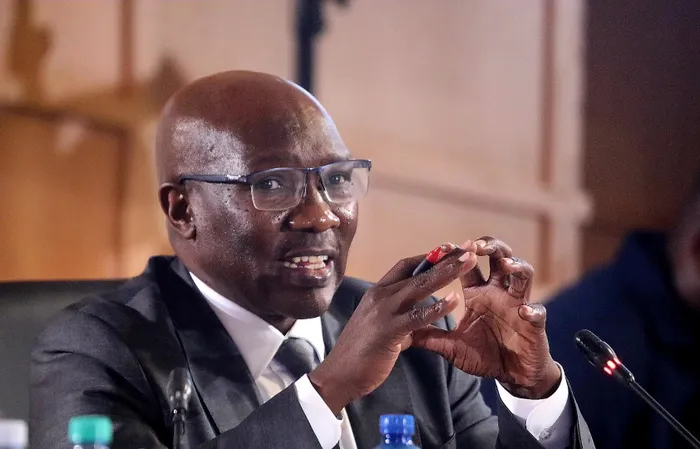Tension between top cops left provinces without Crime Intel heads

Lieutenant General Dumisani Khumalo, the Divisional Commissioner for Crime Intelligence, gave testimony at the Madlanga Commission on Wednesday.
Image: Independent Media
A STALEMATE between Divisional Commissioner for Crime Intelligence Lieutenant General Dumisani Khumalo and his immediate supervisor, Deputy National Commissioner for Crime Detection, Lieutenant General Shadrack Sibiya resulted in at least two batches of senior management posts remaining unfilled within Crime Intelligence.
Khumalo also told the Madlanga Commission of Inquiry that almost half of the provinces in South Africa were without heads of Crime Intelligence, leaving them without a responsible leader to outline a strategy to dismantle organised crime and criminal syndicates.
The division of Crime Intelligence had last year advertised two batches of senior management posts, which included provincial heads of crime intelligence and other section heads at the head office level, Khumalo told the commission.
On both occasions, the processes had been followed including the resource management division of the SAPS, which approves the request for the posts that need to be advertised.
Khumalo said that HR will then advertise the posts, receive applications, screen applications, and send a shortlist of applicants who meet the requirements. Then they will request the responsible division to submit a proposal to the panel.
“I did it (the proposal) on the first batch of posts. The line of communication is that I send it to the immediate supervisor, the Deputy National Commissioner for Crime Detection (Sibiya), for his support of the proposal, who will then sign it off and process it to the HR division for approval in consultation with the national commissioner,” Khumalo said.
“My proposal for the panel for the first batch was not supported by (Sibiya); instead, he proposed his own panel of which he then had to do in consultation with me. I did not agree with his panel, and there was a stalemate, because I was proposing a certain panel, and Sibiya was proposing another.”
Khumalo said that the SAPS Human Resources was not expecting to receive two sets of proposals.
“They have to get one, proposed by me, supported by my immediate supervisor (Sibiya), so that they can approve it, in consultation with the national commissioner,” he said.
This then led to the process of filling those posts remaining stagnant, he said.
“Another request was sent now, for another batch of senior management posts; the same process happened, and it also reached that point of stagnation,” he said.
Khumalo said that he discussed the matter with the national commissioner, Fannie Masemola.
“I maintained my position that the panel I’ve put together, according to me, as the responsible officer of the division, in terms of the legal framework governing the existence of the division, needs to be submitted. That discussion did not find a way forward. The stalemate remained,” he said.
Khumalo said there was a ‘problem’ if there was no leadership in close to 50% of the top management.
Khumalo believes Sibiya may have escalated the stalemate to Police Minister Senzo Mchunu’s office , hence then it informed the decision of halting the filling of posts. In Mchunu’s controversial letter directing the disbandment of the Political Killings Task Team, there was a paragraph titled ‘Filling of posts in the Intelligence Division.’
“All processes to fill vacant posts in the Division should be halted immediately. This applies to all posts in Provinces, including those of Provincial Heads of Intelligence that are currently vacant. It also applies to all posts currently vacant at Head Office. This should be the position until substantive discussions between the Minister and the National Commissioner take place sometime early next year,” read the letter.
The Madlanga Commission of Inquiry is investigating allegations of collusion and corruption between politicians, senior police, prosecutors, intelligence operatives, and elements of the judiciary.
The testimony continues.
Cape Times